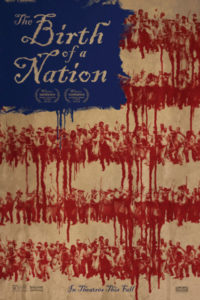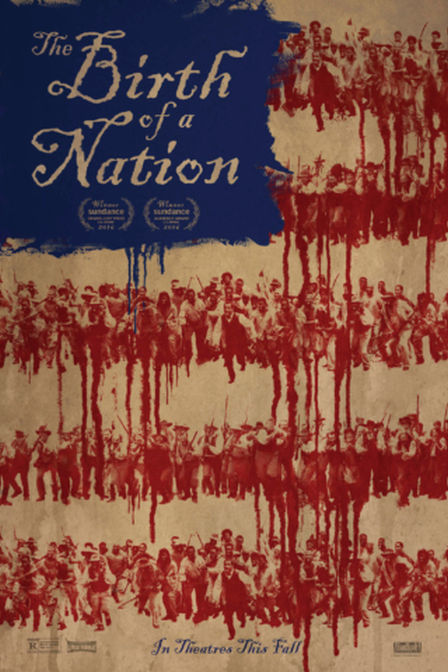
Nat Turner, a literate slave and preacher in the antebellum South, orchestrates an uprising.
Director: Nate Parker
Starring: Nate Parker, Armie Hammer, Penelope Ann Miller
Rated R for disturbing violent content, and some brief nudity
The release of Nate Parker’s “The Birth of a Nation” is aptly timed, tapping into the racial tensions that have seemingly engulfed the United States over the past few years. The film takes its name from D. W. Griffith’s 1915 epic of the same name, which tells the story of two families during and after the Civil War. While Griffith’s film is undeniably important in the history of cinema, it promotes the Ku Klux Klan (KKK), portrays blacks as apelike vandalizers, and is quite frankly hard to watch. Nate Parker’s side of the story involves a slave uprising led by Nat Turner, but the film doesn’t tell a very accurate story. Not necessarily a remake, Parker’s film is a reclamation, in his own words, of D. W. Griffith’s vision, meant to “challenge racism and white supremacy in America.”
It’s difficult to tell exactly when and where Nate Parker is preaching to viewers versus simply telling the story of Nat Turner. In reality, things ended up far worse than the film suggests. Many blacks were killed in response to the uprising, some of them innocent, and resulted in far-reaching discriminatory laws. While some argue that Turner’s uprising was all to send a message, “The Birth of a Nation” isn’t exactly showing the “right” side of history. Instead, Parker’s film is an idealistic version of Turner’s life, even if it is a bit historically dodgy.
“The Birth of a Nation” unfolds exactly how one would imagine a slave-to-rebel story would. Turner sees repeated acts of cruelty and ends up taking matters into his own hands. In reality, Nat Turner was extremely religious. Turner killed dozens of children, though Parker’s film chooses to ignore this entirely, focusing only on characters that have already been established as his victims. The film is exceptionally violent. In one scene, a slave even beheads a white man; this is shown in graphic detail. If you’re squeamish to gore, stay far, far away from this film.
The real Nat Turner proclaimed himself chosen by God to bring about Judgment Day by leading a massacre of men, women and children. Parker’s film largely strays from this narrative. While Turner is a preacher in the film, Parker attends to justify his actions through the Bible. Nate Parker, who stars as Nat Turner, gives a solid performance here, and regardless of its historical inaccuracy, the film works largely off of his performance.
“The Birth of a Nation” also works as a story of right and wrong. It can be gruesome, but Parker’s film examines institutionalized slavery to such a degree that it’s hard to not be moved in some form. It’s easy to sympathize with Turner, especially as the film progresses, but it’s also hard to justify his actions. Perhaps Parker is aware of this. When the rebellion begins, and the first murders take place, Turner walks outside and begins vomiting, aware of what he has just done. The narrative is adjusted for thematic effect, portraying Nat Turner in a slightly more sympathetic light. Yet it also shows scenes in which Turner commits violent acts.
Nat’s story is one of passion. Parker’s film, for whatever reason, fails to do its subject true justice. It takes a long, hard look at slavery in the United States and doesn’t shy away from something just because it’s disturbing to look at, which is something that Parker does quite well. “The Birth of a Nation” comes recommended, even if it’s too ambitious for its own good and doesn’t quite sit well with the facts.

